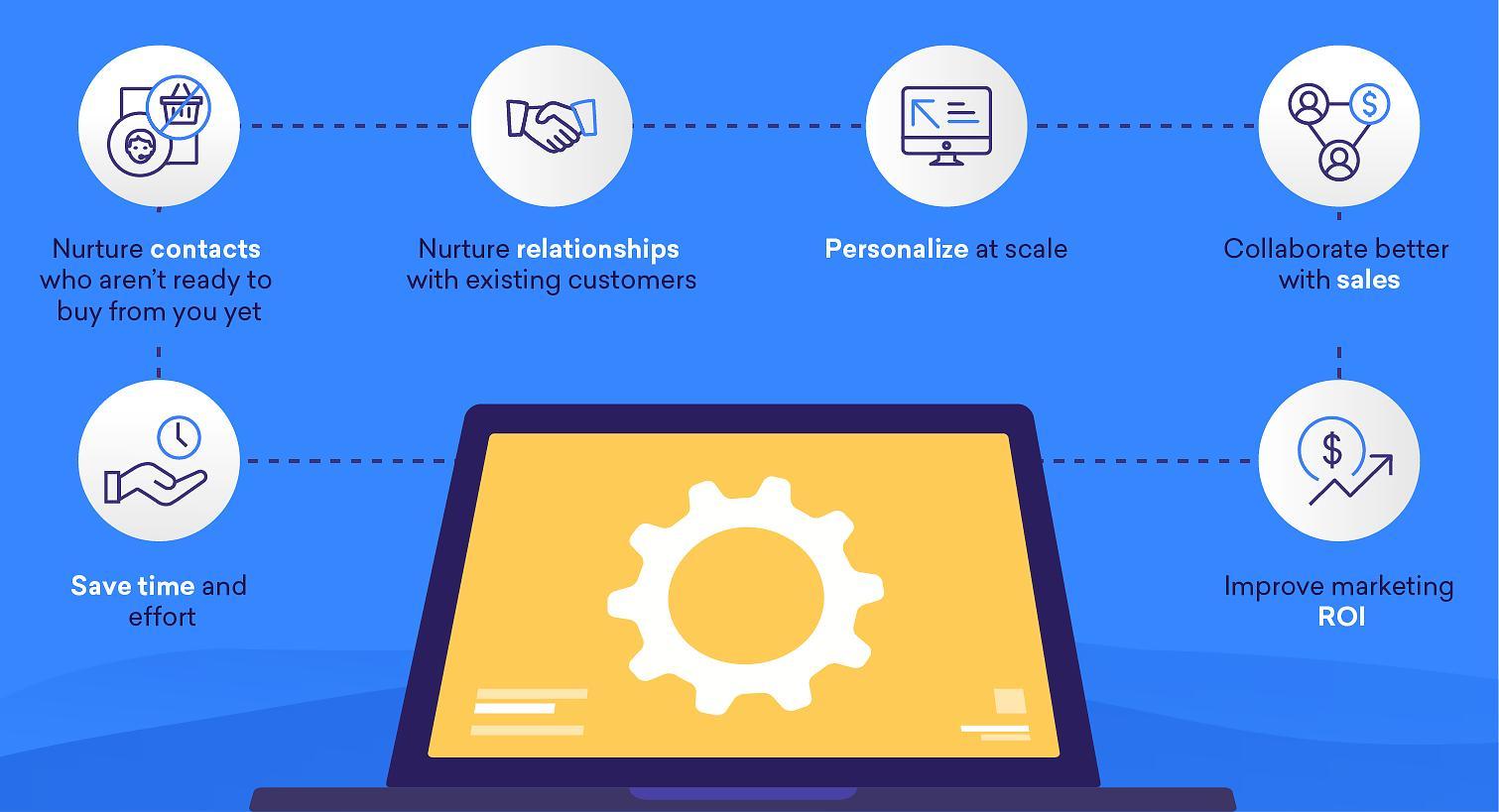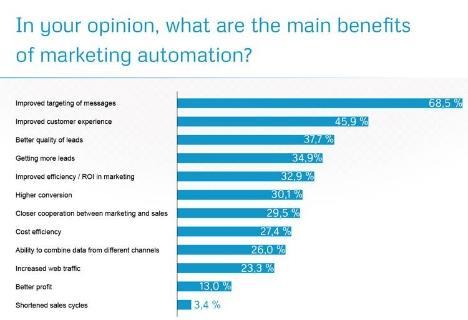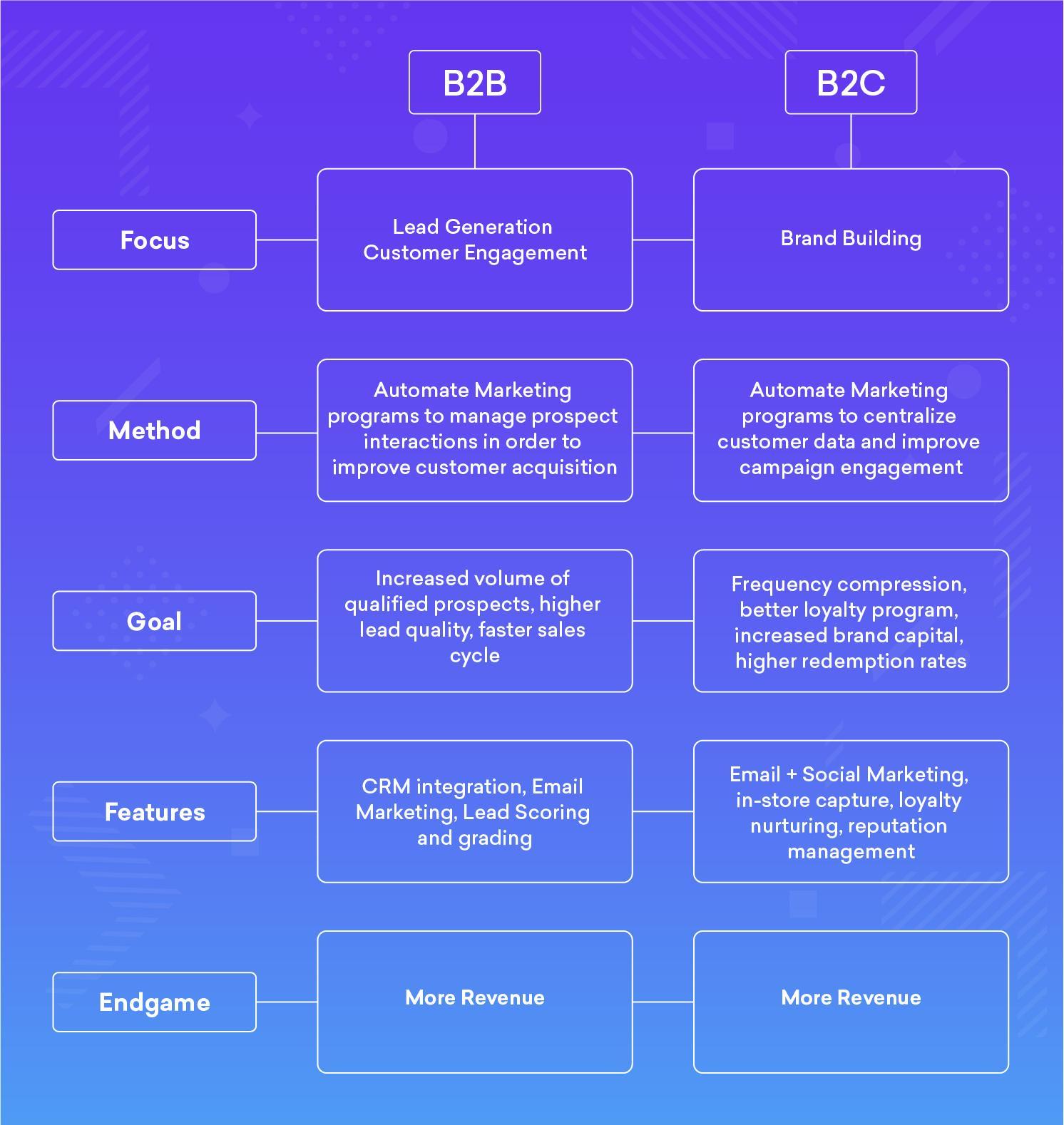



Marketing automation: A new hope in 2021
share on
This post is sponsored by Freshworks.
2020 was a mixed bag for marketers. We grew closer to technology, while socially distancing from our near and dear. Businesses, schools and offices have all migrated to the cloud, and we don’t have to commute as much.
But the convenience of wearing pyjamas and working from the couch comes at the cost of overburdening work. If you look back, you can observe that every day you’ve spent more time at work than yesterday. And that time is spent on repetitive tasks, time that could’ve been saved by making the smart choice of adopting marketing automation.
So, what exactly is this marketing automation?
Marketing automation is a software or a technology that can streamline, automate and measure your marketing efforts. With a marketing automation tool in place, businesses can now engage with their target audience to send out relevant and personalised messages automatically.
Marketing automation is one of the fastest growing markets today and is expected to account for US$32.6 billion by 2024.
This comes as no surprise as marketing automation adoption rates are increasing rapidly, and marketers have seen tremendous ROI from their investments.
Is marketing automation important?
Yes, it is.
Marketing automation is vital for any online business. If you have just started your business and hardly have any visitors, you have the leeway to put off a marketing automation investment until you gain sufficient traffic.
But if you have considerable traffic, it is time that you get your marketing automation software up and running immediately. Mainly because marketing automation helps you:

Why marketing automation matters
So why should you care about marketing automation?
Aside from the fact that marketing automation helps teams scale their efforts and boost ROI, we know it’s also important because of the hard numbers around its relevance and impact.
For example:
- Sixty three per cent of companies expect to realise the benefits of their marketing automation system within six months of implementation.
- Business owners, executives and marketers identified the biggest benefits of marketing automation as saving time (30%); lead generation (22%); increase in revenue (17%); and customer retention (11%).
- Almost 70% of marketers say the improved targeting of messages is the most important benefit of marketing automation.

The benefits of marketing automation are far and wide – and in a world where personalisation, the customer experience, and timelines are only becoming more important, it makes sense as a tactic that helps brands boost customer retention for the long run.
The next question, then, is: How do you build a successful strategy for marketing automation that helps ensure you are investing wisely and producing maximum results?
Creating a marketing automation strategy
Having a solid strategy gives you clear insights on what to expect from your marketing automation investment. Here’s how you can strategise:
Consider your buyer’s journey: Make your marketing automation work for you at every step of your buyer’s journey. This may take the form of automated workflows for nurturing an interested prospect. Or it may be sending an SMS to win back abandoned carts.
Set goals: Know what you want to achieve with marketing automation, and set specific, measurable, achievable, relevant and time-bound goals, aka SMART goals. Example – increase sales qualified leads by 15% at the end of Q3 2020.
Optimise: Once you start your marketing automation efforts, you will have sufficient data to work with. You can then optimise your efforts to achieve the best results. Measuring KPIs, gathering feedback, and regularly assessing the performance of your tool is a great way to start with the optimisation process.
Marketing automation in B2B versus B2C
The ultimate aim of marketing automation is to bring in more revenue. This is irrespective of the company serving businesses or individual customers. But, there are a few clear cut differences between B2B and B2C companies when it comes to implementing marketing automation.

Different priorities: While we’ve already established the end goal of marketing automation as generating more revenue, B2B and B2C companies differ in their focus. A B2B company aims to keep the prospects engaged across the different stages in their buyer’s journey. A B2C company’s objective, on the other hand, is to build the brand and stay on the top of its customers’ minds.
Length of the sales cycle: The sales cycle in B2B is longer when compared to that of B2C. This means that B2B companies have to keep their leads interested enough as they move through the buyers’ journey. B2C sales cycles are usually short. Their engagement is mostly communicating offers, reminders, new arrivals, and the like.
Personalisation: It is relatively easier for a B2B business to group prospects with common characteristics using segments. But B2C companies cannot get away with personalisation using shared segments. Customers are diverse, with unique interests and tastes. So, it is vital they engage with their audience with highly personalised content.
The different channels used: B2B marketing communication relies primarily on email communication. Whereas B2C communication uses different channels such as SMS, web, and push notifications, apart from the good old email.
Put marketing automation to work today
Now that we’ve (sort of) covered the basics here, check out our detailed video guide on marketing and automation to know more about its key concepts; choosing a marketing automation tool; avoiding some of the common mistakes; and reaping higher ROI from your marketing automation investments.
share on
Free newsletter
Get the daily lowdown on Asia's top marketing stories.
We break down the big and messy topics of the day so you're updated on the most important developments in Asia's marketing development – for free.
subscribe now open in new window
